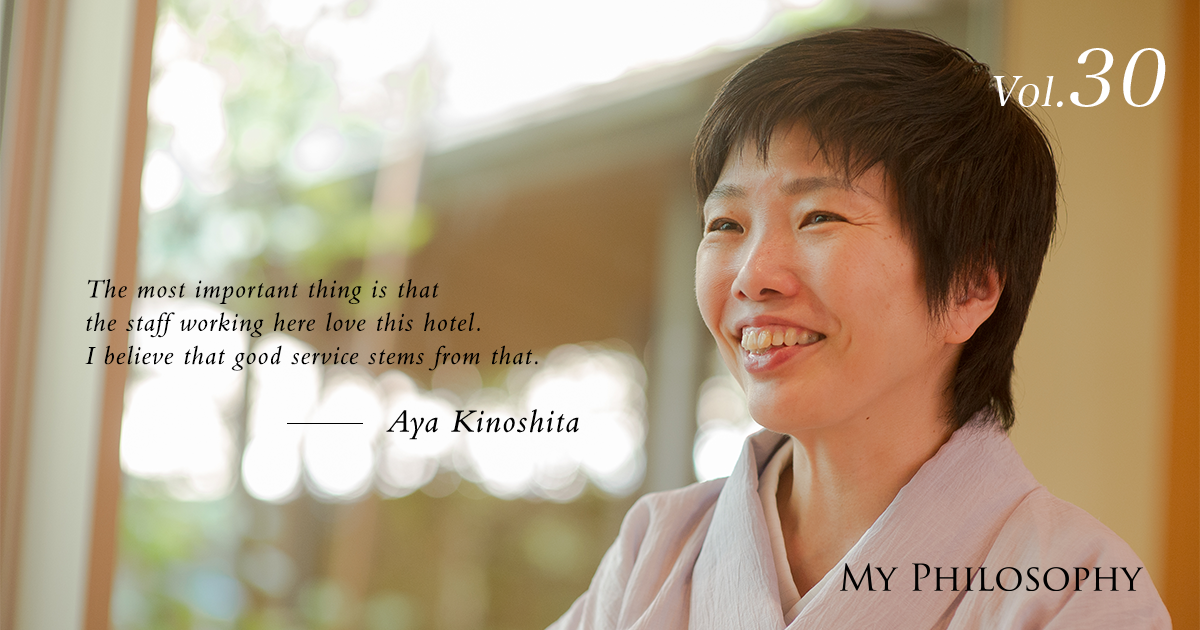
Hotel Niwa Tokyo, renowned for its Edo-era ambiance and lush garden-centric setting, offers guests a uniquely immersive experience. Recognized in the Michelin Guide's hotel category as a “comfortable hotel,” it has maintained a prestigious two-pavilion rating for five consecutive years since its opening. To mark our 30th interview milestone, we are honored to welcome Ms. Aya Kinoshita, the hotel's General Manager.
Profile
Vol.30 Aya Kinoshita
Representative Director of UHM Co., Ltd. | General Manager of Hotel Niwa Tokyo
Born in Tokyo in 1960, Aya Kinoshita graduated from Sophia University's Faculty of Foreign Studies, The Department of English Studies. After graduating, she began her career at Hotel New Otani. She later worked at Nakajimaya Grand Hotel, Shizuoka, part of the same group, before joining Tokyo Green Hotel Co., Ltd. (now UHM Co., Ltd.) as a Director in 1994. In 1995, she was appointed Representative Director. In 2009, she opened Hotel Niwa Tokyo and has been serving concurrently as General Manager since 2011. She is the author of "The Miracle of Hotel Niwa Tokyo (“Niwa no Hotel Tokyo” no Kiseki)" (Nikkei BP).
*Titles and positions are as of the interview date (July 2014).
Not an Extraordinary Experience, But a “High-Quality Everyday Life”
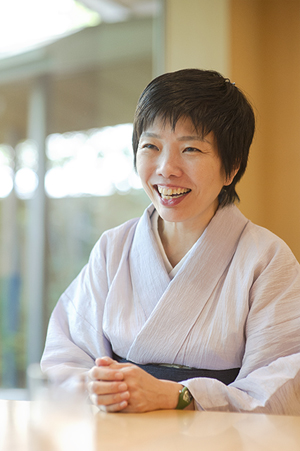
In 2004, we decided on a complete overhaul of the long-established business hotel, Tokyo Green Hotel Suidobashi. Given the increase in business hotels within Tokyo, we chose to build a completely new hotel with a unique concept rather than just renovating. I began by considering what type of hotel would provide the most comfort for me. Given my line of work, I find luxurious, spacious rooms unsettling. I feel compelled to inspect every amenity in the room, pushing buttons and opening doors, which keeps me busy. Instead, I relax more in a room that I wish my own home could resemble. While staying at a luxury hotel to experience something extraordinary is wonderful, the new hotel I aimed to create would not offer an extraordinary experience but rather be a second home where one can relax as they would in their own home. The concept was “high-quality everyday life” as an extension of one’s daily routine.
Five years passed from the decision to rebuild. We held numerous project meetings, increasing in frequency from once a month to once every three weeks, and finally to weekly meetings. We were blessed with wonderful collaborators, including the architectural firm involved in concept creation, landscapers, the general contractor, and our staff. Together, we created the wonderful Hotel Niwa Tokyo. This year marks the hotel’s fifth anniversary since its opening, and we are fortunate to be in a position where rooms are hard to book. Our success wasn’t due to any major publicity but rather to gradually building a positive reputation through word-of-mouth on information sites and other channels. When guests feel they’ve had a good experience, they naturally want to share it with others. I hope that the number of fans of our hotel continues to grow little by little.
Not Everything Can Appeal to Everyone
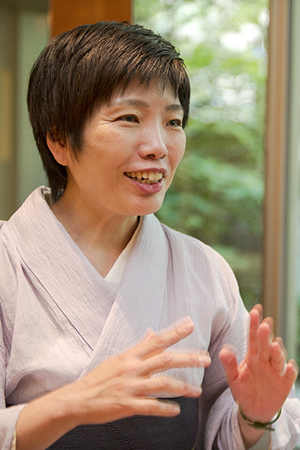
“It would be boring if everything appealed to everyone.” This has been a central thought in creating our concept. Trying to create something that is best for everyone is challenging. If you aim to please everyone, the value standards become mediocre, defeating the purpose of building a new hotel. If a customer’s values align with those of Hotel Niwa, they will likely return. If not, it’s unfortunate, but it can’t be helped. For the furnishings, I selected items that I genuinely liked within a broader range. If I pursued my personal tastes too much, it would become mere self-satisfaction, while focusing solely on objective value would result in something bland despite broad appeal. It was a continuous struggle to balance negotiable and non-negotiable aspects within the constraints of a limited budget and value standards.
The stability of our value standards likely comes from the fact that I serve as the persona in our persona marketing. However, it would be problematic if everything depended on my presence. The staff must understand these value standards and be able to make decisions within that framework. Although I am sometimes perceived as an authoritative executive, I rarely interfere in day-to-day operations. I encourage the staff to freely propose ideas not only regarding furnishings but also systems and personnel matters. Rather than focusing on who will succeed me, I believe it is crucial to nurture the staff so that the hotel and the company can continue to thrive without my presence.
Not Dwelling on Problems
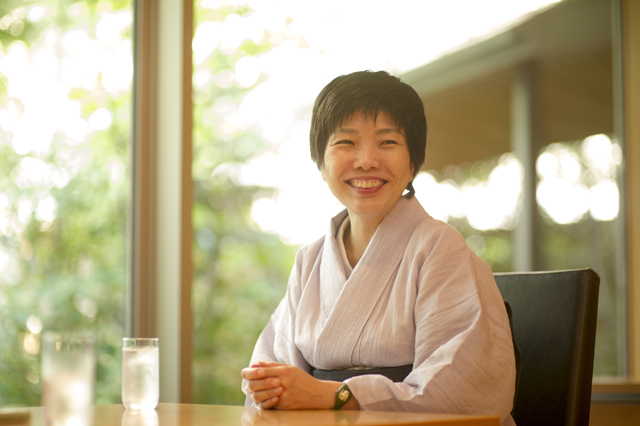
When I became a business owner at the age of 34, I started with no confidence. I had no prior experience managing subordinates or studying business management. There were times when, as the top decision-maker, I would sway by thinking, “This doesn’t feel quite right, but I’ll go along with what others suggest.” Through various experiences, I gradually realized that I needed to speak up when something felt wrong.
I have faced tough times. There were instances when my intentions weren’t clearly understood by the staff, which was disappointing, or when I had to severely discipline employees who caused problems. However, these issues were partly my fault for not communicating effectively and partly the management’s fault for creating an environment where betrayal could happen. But these are all in the past. If I were to brood over problems with a worried expression, it would concern the staff, and that anxiety would be evident to our customers as well. I always maintain the mindset of “things will work out,” and I’ve never lost sleep over worries. I tend to forget issues quickly, which might make me well-suited for being a president.
Enjoying Each Day
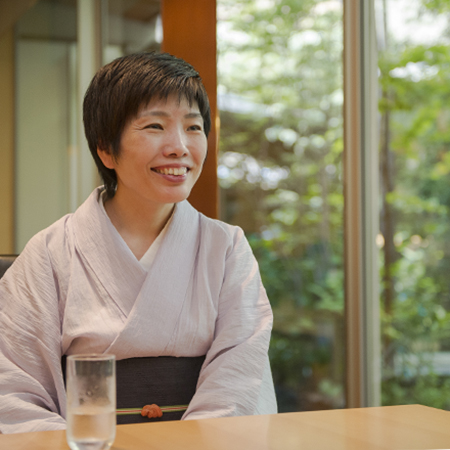
In hotel management, the most important thing is whether the staff love working at Hotel Niwa Tokyo and find a sense of purpose in their work. If they think, “This isn’t a great hotel,” they won’t be able to provide excellent service. When you love something, you naturally want others to love it too. Even guests who arrive with low expectations will feel the staff’s enthusiasm and effort, which leads to good service and ultimately to customer satisfaction.
My personal motto is “always be in a good mood.” I dislike people who seem grumpy or arrogant, and I strive not to be that way. I make a conscious effort to always wear a smile. Additionally, I believe in “living each day joyfully.” I enjoy watching Kabuki and going to concerts, often going alone on a whim because I don’t want to regret not having seen something. Whether in my professional or personal life, I aim to live in a way that I won’t have any regrets, no matter when my time comes.
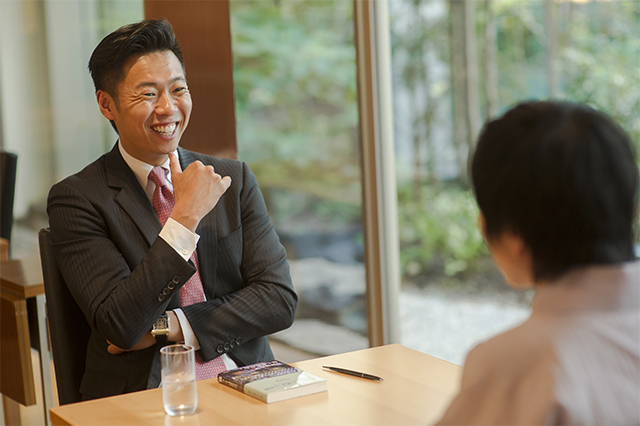
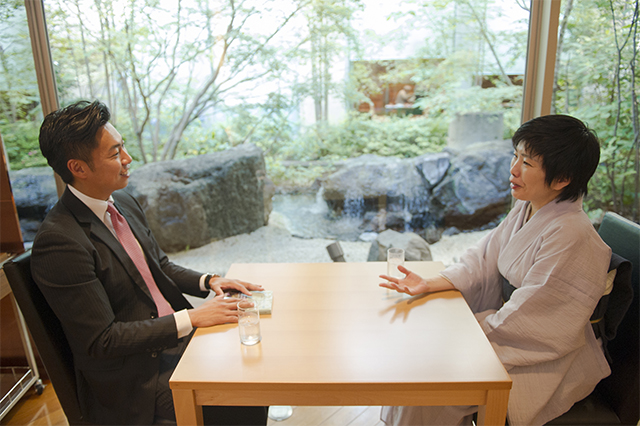
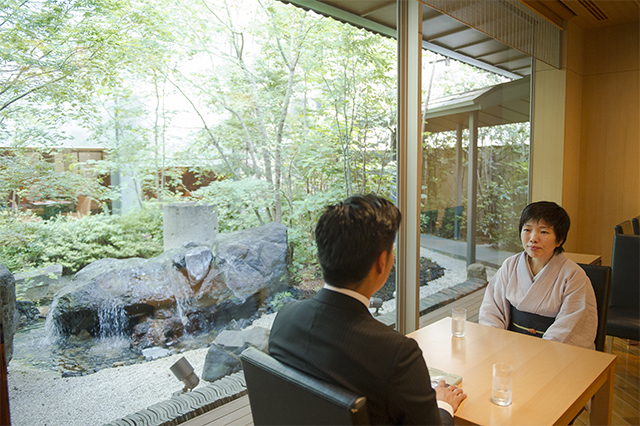
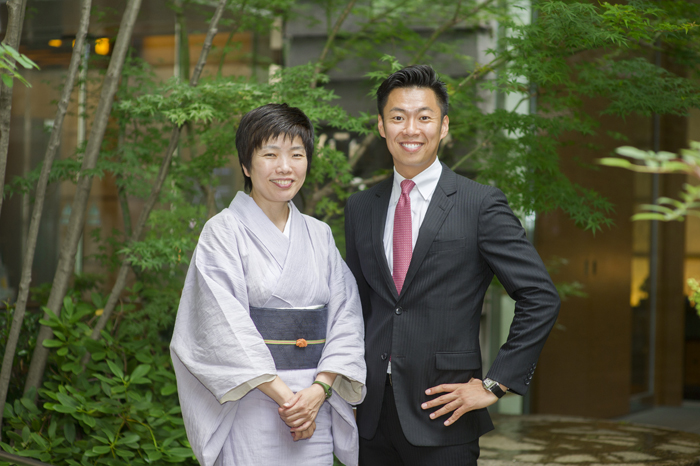
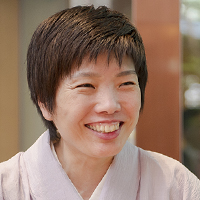
When I met Mr. Sugiyama for this interview, he was as passionate and sincere as I had imagined from reading his book. While it might be impolite to call him young, he is much younger than I am.
Unlike me, who became a hotel manager somewhat by default due to being born into a family that ran an inn, Mr. Sugiyama has carved out his own path in life through his proactive approach. I was initially worried that our conversation might not align, but we found much common ground as fellow managers and had a truly enjoyable discussion. Later, when he stayed at Hotel Niwa with his family, I saw his gentle side as a loving father, which was very heartwarming.
I look forward to his continued success and will be cheering him on.
General Manager Hotel Niwa Tokyo
Aya Kinoshita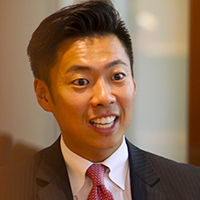
Hotel Niwa Tokyo’s approach of offering a unique concept that doesn’t compete with others and attracting guests who resonate with it fits perfectly with the current times. Ms. Kinoshita became the president at the age of 34, the same age I am now. While she has faced similar challenges as a manager, our interview made me realize that this is part of the joy of management.

Recently, on our 12th wedding anniversary, my three eldest sons were away at camp, so I stayed with my wife and our 1-year-old daughter. The food at the Japanese restaurant “Yukuri” was delicious, and it reminded me of the charm of Japanese cuisine. The breakfast buffet at the grill “Grotto” offered a wide variety of vegetables, and I found myself wanting to return just for breakfast. The top-notch mattress provided such comfort that I slept soundly, as if knocked out. I highly recommend that everyone experience this high-quality everyday life at least once.
July 2014,Hotel Niwa Tokyo.Translated by ILI Inc.































































































































